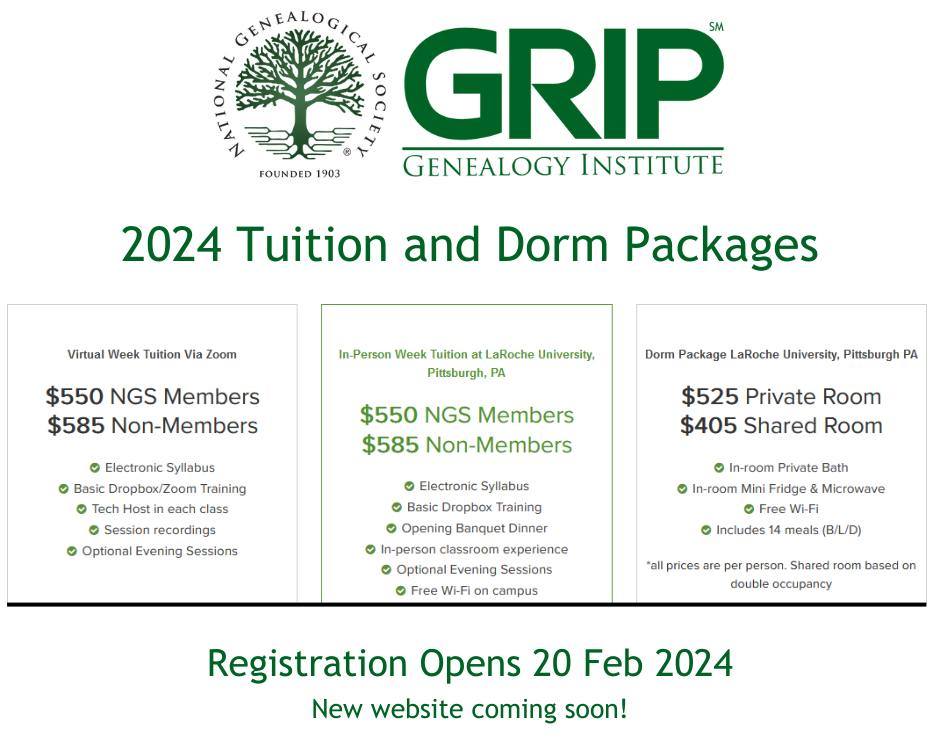More Digging Deeper Sessions for June 2024, GRIP
Four Tuesday sessions, June 24, 2024 Virtual GRIP Institute
PERSI: Using the Periodical Source Index (Cari Taplin)
In this session, we will take a look at Allen County Public Library’s Periodical Source Index (PERSI). We will examine its history and purpose, and its new interface at the ACPL website. Participants will also gain valuable tips and techniques for getting the most out of this often-overlooked resource of accessing information in older genealogical society journals through several mini case studies using PERSI and seeing its usefulness in giving your ancestors’ stories even more life.
Probate Records: More than Wills and Estates (Cari Taplin)
Probate courts hold the records of deceased persons such as estates, inventories, administrations, and so on. But probate records usually hold more than simply the records of a deceased person. Guardianships for both adults and minors, commitments to institutions, apprenticeships, and more are included. These records should not be overlooked because you will find information on family relationships, ages, birth and death details, land ownership, marriages, and other evidence and clues.
Lunch Break
Getting the Most from Vital Records and Their Substitutes (Amy E. K. Arner)
Vital records are usually among the first types of records genealogists use. A variety of entities produce vital records—all of which have different rules about the creation and storage of the records. Those rules change over time. Complicating matters, vital records don’t always exist for the times and places where we research. During this session we’ll cover what vital records are, how to find them, what we can use as alternate sources, and how to glean all of the information from the records.


